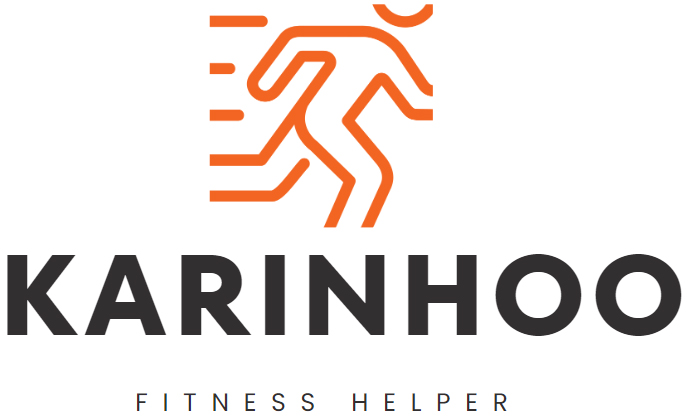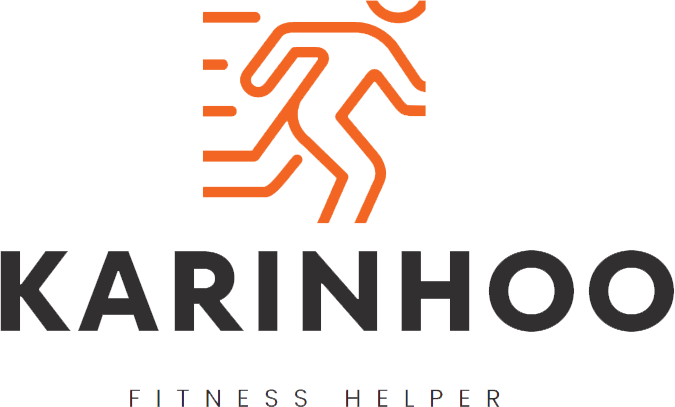The Importance of a Balanced Diet for Runners
A balanced diet is essential for runners, as it provides the necessary fuel for optimal performance and supports weight loss goals. Proper nutrition is key to maintaining energy levels, building muscle, and aiding in recovery.
One of the most important aspects of a balanced diet for runners is ensuring an adequate intake of carbohydrates. Carbs are the body’s primary source of energy, and they are especially important for endurance activities like running. Aim to include complex carbohydrates such as whole grains, fruits, and vegetables in your meals and snacks.
Protein is another crucial nutrient for runners, as it helps repair and rebuild muscles after intense training sessions. Incorporate lean sources of protein into your diet, such as poultry, fish, tofu, and legumes. Including a source of protein in each meal can help keep you satiated and support muscle growth.
Fats are often vilified, but they play a vital role in the runner’s diet. Healthy fats, such as those found in avocados, nuts, seeds, and olive oil, provide essential fatty acids and can help reduce inflammation in the body. Including moderate amounts of fat in your diet can also help regulate hunger and keep you satisfied.
Alongside macronutrients, runners need to pay attention to their micronutrient intake. Vitamins and minerals are critical for overall health and performance. Adequate amounts of vitamins like vitamin C, vitamin E, and B vitamins can help support the immune system and reduce oxidative stress in the body. Minerals like iron, calcium, and magnesium are also important for runners.
While it’s tempting to focus solely on macronutrients, hydration is often overlooked but equally vital. Proper hydration is essential for optimal performance and aids in weight loss. Be sure to drink enough water throughout the day, aiming for at least eight glasses, and adjust your intake based on your training intensity and environmental conditions.
A balanced diet is crucial for runners looking to optimize weight loss and overall performance. a variety of complex carbohydrates, lean proteins, healthy fats, and essential micronutrients into your meals can help fuel your runs, aid in recovery, and support long-term weight management goals. Don’t forget to prioritize hydration, as proper fluid intake is essential for staying healthy and performing at your best.
The Key Nutrients for Optimal Weight Loss in Runners
Maintaining a healthy weight is crucial for runners, as it directly impacts their performance and overall well-being. When looking to shed some pounds, it’s important to do so in a sustainable and nourishing way. By incorporating key nutrients into their diet, runners can fuel their bodies for optimal weight loss. Here are some essential nutrients that should be a part of every runner’s diet:
1. Protein: Protein is essential for muscle repair and growth, making it crucial for runners. It also helps to keep you feeling fuller for longer, reducing the likelihood of excessive snacking. Good sources of protein include lean meats, poultry, fish, dairy products, legumes, and plant-based proteins like tofu and tempeh.
2. Fiber: High-fiber foods are excellent for weight loss, as they promote feelings of satiety and help regulate blood sugar levels. Whole grains, fruits, vegetables, beans, and nuts are all great sources of fiber that runners should incorporate into their meals and snacks.
3. Healthy Fats: Contrary to popular belief, healthy fats are beneficial for weight loss. They help to increase satiety, support hormone production, and reduce inflammation. Sources of healthy fats include avocados, nuts, seeds, olive oil, and fatty fish like salmon.
4. Complex Carbohydrates: Runners rely on carbohydrates for energy, but not all carbs are created equal. Opt for complex carbohydrates, such as whole grains, fruits, and vegetables, as they provide sustained energy without the crash associated with refined carbs.
5. Vitamins and Minerals: A well-rounded diet that includes a variety of fruits and vegetables will provide runners with the necessary vitamins and minerals to support weight loss. Focus on foods rich in vitamin C, vitamin A, iron, calcium, and magnesium.
In addition to incorporating these key nutrients into their diet, runners looking to lose weight should also pay attention to proper portion sizes and timing of meals. It’s essential to fuel the body adequately before and after workouts to optimize performance and recovery.
By following a balanced diet that includes these key nutrients, runners can nourish their bodies for optimal weight loss. Remember, it’s important to consult with a healthcare professional or registered dietitian for personalized recommendations based on individual needs and goals. With the right diet and a consistent training routine, runners can achieve their weight loss goals while still performing at their best.
The Importance of Meal Planning for Runners Looking to Lose Weight
Proper meal planning plays a crucial role in achieving weight loss goals for runners. It not only provides the necessary fuel for intense workouts but also ensures that your body receives the nutrients it needs to recover and perform optimally. Here are some valuable meal planning tips for runners looking to shed those extra pounds.
-
Set Calorie Targets:
When trying to lose weight, it’s important to consume fewer calories than you burn. However, it’s essential to strike a balance and ensure that you’re still consuming enough calories to support your running routine. Aim for a daily calorie deficit of around 500-1000 calories, depending on your current weight and goals. -
Prioritize Whole Foods:
Focus on incorporating whole, unprocessed foods into your diet. These foods are naturally rich in essential nutrients, fiber, and antioxidants, which are beneficial for overall health. Opt for fruits, vegetables, lean proteins, whole grains, and healthy fats such as avocados and nuts. -
Control Portion Sizes:
Portion control is key when it comes to weight loss. Be mindful of portion sizes and avoid oversized servings that can lead to excess calorie intake. Use measuring cups or a food scale to ensure accurate portion sizes, especially for calorie-dense foods like nuts, oils, and nut butter. -
Distribute Meals and Snacks:
Instead of consuming three large meals, try splitting your meals into smaller, more frequent portions throughout the day. This helps keep your metabolism active and prevents energy dips. Include healthy snacks between meals, such as Greek yogurt, carrot sticks with hummus, or a handful of almonds. -
Include Lean Proteins:
Protein is vital for muscle repair and growth, which is especially important for runners. Including lean proteins in your meals not only helps you feel satisfied but also aids in maintaining muscle mass. Good sources of lean protein include chicken breast, tofu, eggs, legumes, and low-fat dairy products. -
Stay Hydrated:
Proper hydration is essential for optimal performance and weight loss. Make sure to drink enough water throughout the day, both during and outside of your workouts. Aim for at least 8 cups of water daily, and increase that amount when engaging in intense running sessions or in hot weather. -
Plan Ahead:
Spend some time each week to plan your meals and snacks. Having a well-thought-out meal plan helps you stay on track, prevent impulsive food choices, and ensure that you have all the necessary ingredients on hand. Consider prepping ingredients or meals in advance to save time during busy weekdays.
Remember, while meal planning is crucial, it’s also essential to listen to your body’s cues. Adjust your calorie intake and food choices based on your individual needs and preferences. By combining smart meal planning with regular exercise, you’ll be on your way to achieving your weight loss goals while nourishing your body for optimal running performance.
Hydration Strategies for Runners
Staying properly hydrated is essential for runners, as it helps maintain optimal performance and supports weight loss goals. When it comes to hydrating, it’s important to have a plan in place to ensure you’re meeting your body’s fluid needs. Here are some hydration strategies that can help runners stay properly fueled and hydrated for their workouts:
-
Drink water regularly throughout the day: It’s crucial to start your hydration routine well before your run. Aim to drink at least 8-10 cups of water throughout the day to ensure your body is well-hydrated. This will help prevent dehydration and ensure you have enough fluids in your system for optimal performance.
-
Hydrate before, during, and after your run: Prioritize pre-run hydration by drinking about 16-20 ounces of water or a sports drink about 2 hours before your run. During your run, aim to consume 4-8 ounces of fluids every 20 minutes to maintain hydration levels. After your run, replenish any fluid and electrolyte losses by consuming another 16-24 ounces of water or a recovery drink.
-
Consider electrolyte replenishment: Electrolytes, such as sodium, potassium, and magnesium, are essential for proper fluid balance in the body. When you sweat during exercise, you lose electrolytes, so it’s important to replenish them. Choose sports drinks or electrolyte tablets that contain these vital nutrients to restore electrolyte balance.
-
Monitor your urine color: Your urine color can be an indicator of your hydration status. Aim for pale yellow or straw-colored urine, which indicates that you are well-hydrated. Dark yellow urine can be a sign of dehydration, so increase your fluid intake if you notice this.
-
Plan your hydration route: If you’re going for a long run or participating in a race, plan your route around hydration stations or carry fluids with you. Investing in a hydration belt or handheld bottle can help you conveniently carry water or sports drinks during your run.
-
Rehydrate post-run with a balanced snack: In addition to replenishing fluids, it’s important to refuel your body after a run. Opt for a post-run snack that includes both carbohydrates and protein to aid in muscle recovery and replenish energy stores. Good options may include a fruit smoothie with Greek yogurt, a protein shake, or a balanced meal containing lean protein and whole grains.
Remember, every runner is unique, and fluid needs can vary based on factors such as intensity, duration, and environmental conditions. Experiment with different hydration strategies during training to find what works best for you. By focusing on proper hydration, you can optimize your performance, support weight loss, and ensure overall well-being as a runner.
Feel free to reach out if you have any other questions or need further guidance.
The Runners’ Diet: Nourishing Your Body for Optimal Weight Loss
When it comes to weight loss, runners have slightly different nutritional needs compared to other athletes. Their bodies require a balanced diet that provides them with the right nutrients for energy, endurance, and recovery. Pre- and post-run nutrition play a crucial role in achieving optimal weight loss while fueling the body effectively. Here are some essential guidelines to help runners maintain a healthy diet while shedding those extra pounds.
Pre-run Nutrition
Before a run, it’s essential to fuel your body with the right nutrients to maximize performance and promote weight loss. Consume a meal or snack that consists of complex carbohydrates, lean protein, and healthy fats. This combination provides a sustained release of energy and prevents muscle breakdown during exercise. Opt for foods like whole grain toast with nut butter, yogurt with fruit and granola, or a veggie omelet with avocado.
Post-run Nutrition
After a run, the body needs nutrients to repair and recover. This is the ideal time to consume a combination of carbohydrates and protein to replenish glycogen stores and rebuild muscle tissue. Include foods such as whole grain pasta with lean meat or fish, a protein shake with fruits and vegetables, or a quinoa salad with roasted veggies. Hydration is also crucial post-run, so make sure to drink plenty of water or a sports drink to replace lost fluids.
Caloric Deficit for Weight Loss
To achieve weight loss, runners must create a caloric deficit by burning more calories than they consume. However, it’s important to strike a balance and not significantly reduce calorie intake, as this can negatively impact performance and overall health. Aim for a moderate deficit of around 500-700 calories per day, achieved through a combination of diet and exercise. Monitor your calorie intake and adjust accordingly based on your energy needs and weight loss goals.
Macro and Micro Nutrients
Runners should pay attention to both macronutrients (carbohydrates, proteins, and fats) and micronutrients (vitamins and minerals). Carbohydrates provide essential energy for running, so include whole grains, fruits, and vegetables in your diet. Lean proteins, such as chicken, fish, tofu, or legumes, aid in muscle repair and recovery. Healthy fats from sources like nuts, seeds, and avocado are essential for overall health and satiety.
Monitoring and Adjusting
Weight loss progress should be monitored regularly. Keep track of your food intake and the calories burned through exercise to ensure you’re maintaining a caloric deficit. However, it’s essential to listen to your body’s needs and make adjustments if necessary. If you feel fatigued, lack energy, or experience any negative effects, consult a nutritionist to reassess your diet plan.
Runners looking to lose weight should pay attention to their nutrition to achieve optimal results. Following a balanced diet, focusing on pre- and post-run nutrition, and maintaining a moderate caloric deficit will help nourish the body while shedding unwanted pounds. Remember, everyone’s body is different, so find a nutrition plan that works best for you and consult a professional if needed. Stay consistent, stay motivated, and the results will follow.
Conclusion
The runners’ diet plays a crucial role in achieving optimal weight loss and fueling performance. It is essential for runners to maintain a balanced diet that consists of key nutrients, as well as practice effective meal planning strategies and hydration techniques. By carefully considering pre- and post-run nutrition guidelines, runners can support weight loss efforts while nourishing their bodies for optimal performance.
A balanced diet is vital for runners because it provides the necessary energy and nutrients needed to support training and promote weight loss. By focusing on a variety of foods from different food groups, runners can ensure they are meeting their nutritional needs and maintaining a healthy weight. A combination of carbohydrates, proteins, and healthy fats is essential for sustaining energy levels, promoting muscle repair and growth, and regulating metabolism.
When it comes to weight loss, key nutrients should be emphasized in a runner’s diet. These include lean proteins, which help build and repair muscles, as well as complex carbohydrates that provide sustained energy. fruits and vegetables into meals and snacks is also important, as they are packed with vitamins, minerals, and fiber that aid in digestion and overall health. Additionally, healthy fats, such as those found in nuts, seeds, and avocados, can help keep runners feeling satisfied and support essential bodily functions.
Meal planning is an effective strategy for runners looking to lose weight. By preparing and portioning meals in advance, runners can have healthier options readily available, reducing the likelihood of making poor food choices. Including a mix of macronutrients in each meal, along with plenty of fruits and vegetables, can help runners feel satisfied and avoid the temptation of unhealthy snacks. Additionally, incorporating high-quality protein sources, such as lean meats, fish, tofu, or legumes, can aid in muscle recovery and help prevent muscle loss during weight loss.
Hydration is a vital aspect of a runner’s diet. Staying properly hydrated before, during, and after runs can support weight loss efforts and overall performance. Water is the best choice for hydration, but for longer runs or intense workouts, electrolyte-rich beverages or sports drinks may be necessary to replenish vital minerals and maintain hydration levels. Monitoring urine color can serve as a helpful indicator of hydration status, with pale yellow urine being the goal.
Pre- and post-run nutrition greatly impacts weight loss for runners. Consuming a small snack or meal that includes carbohydrates and protein about an hour before a run provides the necessary energy and supports muscle recovery. After a run, replenishing glycogen stores with a combination of carbohydrates and protein is crucial for proper recovery and muscle repair.
The runners’ diet is a critical component of weight loss and optimal performance. By focusing on a balanced diet, incorporating key nutrients, implementing meal planning strategies, and practicing proper hydration and pre- and post-run nutrition, runners can nourish their bodies for optimal weight loss. By making smart food choices and prioritizing nutrient-dense meals, runners can achieve their weight loss goals while maintaining energy levels and supporting overall health and well-being.






